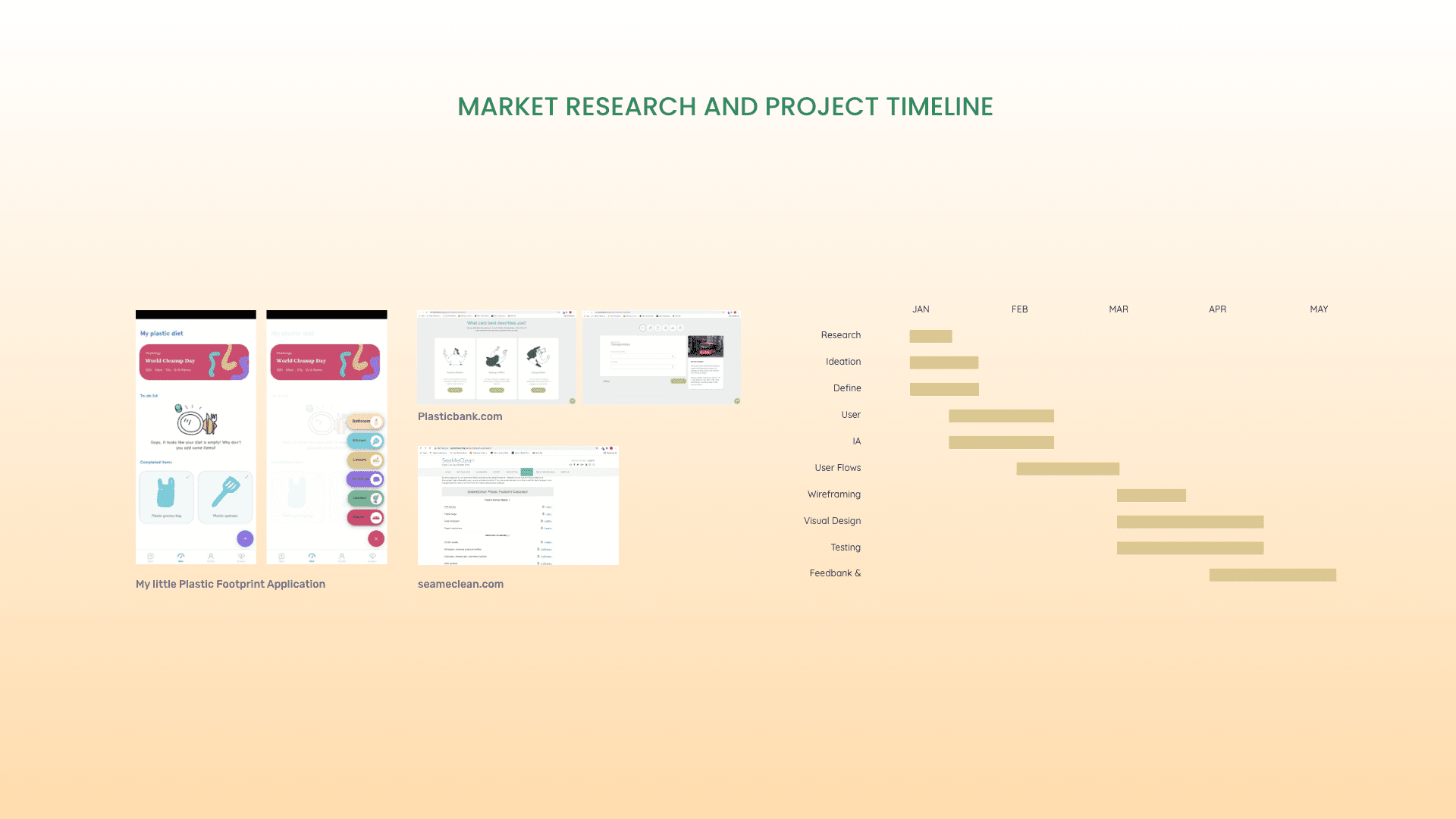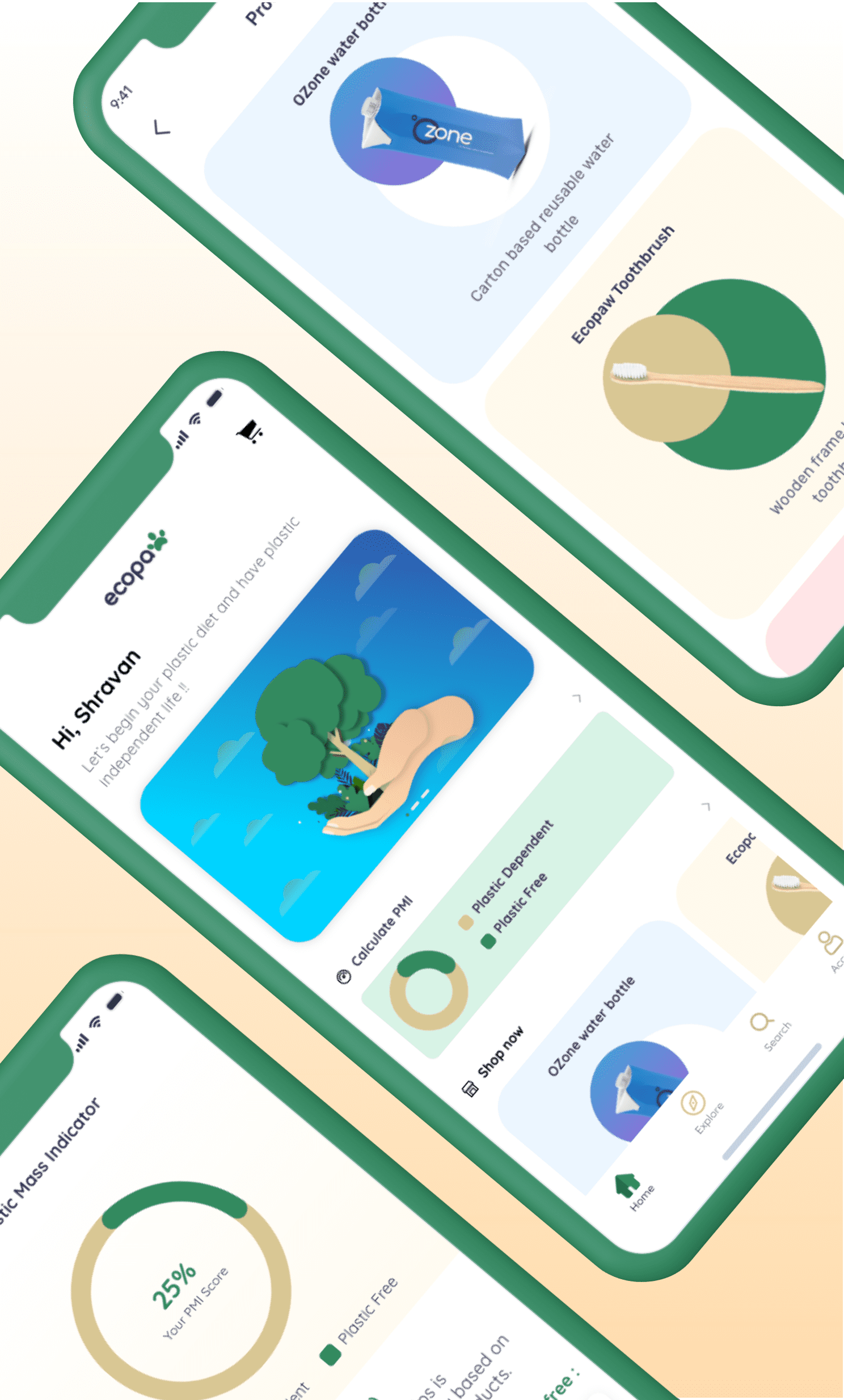Eco Paw
Project Summary
Ecopaw is a mobile app empowering users to track and reduce their daily plastic consumption, fostering sustainable habits and environmental awareness.
Timeline
January 2021 - May 2021
My Role
Designer from research to implementation
Team Size
1
Problem
As the usage of plastic is increasing every day, many are not aware of the plastics used in their products. We think that even if we use some plastic product, we have to make sure that it has to be segregated for trash for recycling purposes. But the truth is many plastics are not biodegradable and are only created for a single-use and currently, only 9% of plastic is being recycled in the world. With larger organizations, just greenwashing and individuals believing in the segregation of trash will solve the problem of plastic waste is not true.
The root cause has to be analyzed and the initiative has to be taken at an individual level by creating an awareness of the plastic independent lifestyle and about alternative products which can be used to reduce plastic usage.
Target Audience
Ecopaw targets environmentally conscious consumers aged 20 to 50, who are slightly tech-savvy and use the app daily to track and reduce their plastic consumption.
Insights
The user research uncovered key insights that significantly influenced our user experience design:
-
Many users express interest in reducing plastic usage but struggle to find practical methods.
-
Misconceptions about biodegradable plastics and greenwashing by brands are prevalent.
-
Existing information on living a plastic-independent lifestyle is fragmented and lacks practical monitoring solutions.
-
Some users find eco-friendly messaging overly preachy, reducing daily usage motivation.
-
Users face challenges in finding trustworthy information and platforms for alternative products.
Objective
The objective is to create a comprehensive solution that guides users towards a plastic-independent lifestyle, while keeping them motivated through the principles of reduce, reuse, and recycle.
Challenges & Limitations
-
Conducting numerous user interviews was challenging due to project timeline constraints.
-
Ensuring sustained user motivation to achieve the ultimate goal of reducing plastic usage.
-
Existing information on living a plastic-independent lifestyle is fragmented and lacks practical monitoring solutions.
-
Addressing the widespread use of plastic in many essential products, which are sometimes irreplaceable, and guiding users on effective reuse strategies.
-
Overcoming common user skepticism regarding the feasibility and safety of reusing products

Competitor Analysis
Existing applications like My Little Plastic Footprint, Plastic Bank, and Seameclean lacked comprehensive features and user experience. For example, My Little Plastic Footprint focuses on plastic-free achievements only, Plastic Bank requires extensive user input, and Seameclean offers a basic lifetime consumption calculator without additional features.
Ecopaw distinguishes itself by combining features such as Plastic Mass Index (PMI) calculation, alternative product recommendations and shopping, educational articles on plastic-free living, and a loyalty and referral program. These elements collectively make Ecopaw a unique, all-in-one solution for promoting a plastic-independent lifestyle through awareness and access to alternative products.
Solution
The Solution consists of key features which helps Ecopaw to be unique experience for user to have a plastic independent lifestyle.

Next Steps and Future Scope
-
Enhance the PMI calculator by incorporating more factors and accounting for a wider range of plastic-dependent products.
-
Conduct additional user testing and gather feedback to refine the user experience.
-
Focus on improving gamification and retention strategies to increase user engagement and motivation.